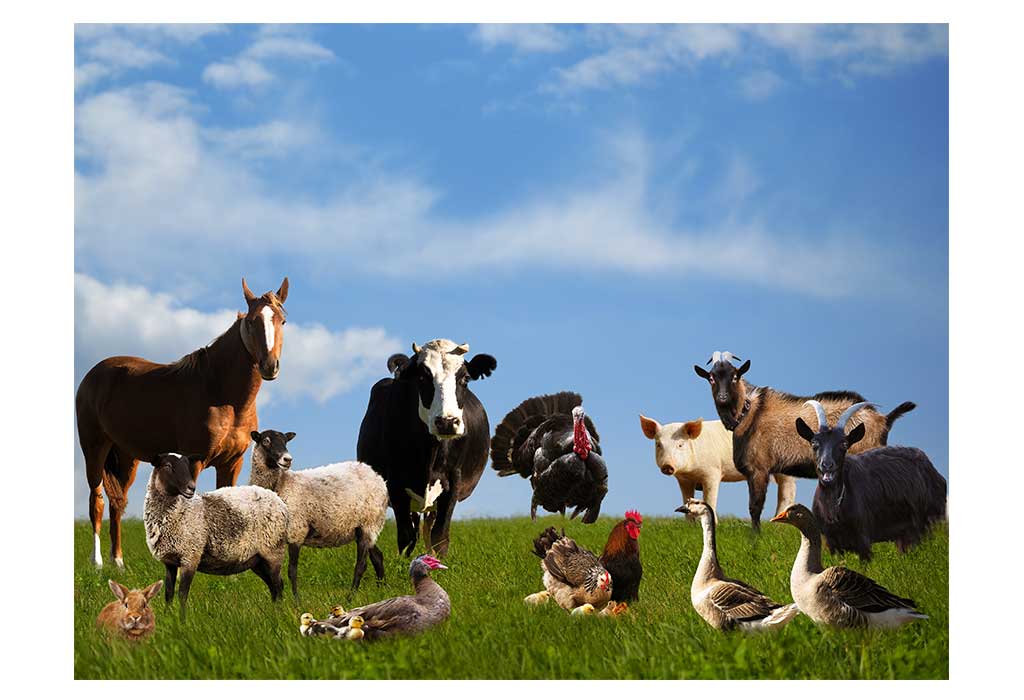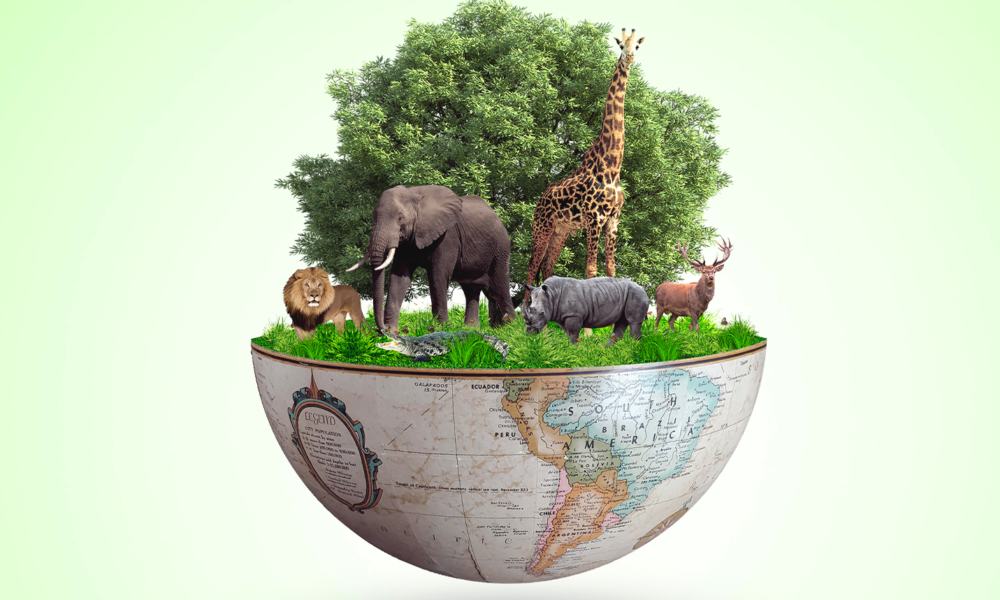
Vegans and Vegetarians Think They Don’t Kill Animals but They Do
Less than a week ago, Claudio Bertonatti, one of the most renowned naturalists in Argentina, wrote an article that triggered an earthquake. The tsunami has already reached us here and is likely to extend even further.
In his article, The Vegan Confusion, he warns that eating vegetables doesn’t prevent the death of animals. Bertonatti has enraged thousands of vegans and vegetarians, as well as other nature conservationists. However, many who read his article learned something about animal rights that might never have occurred to them otherwise.
We spoke to Claudio about his earth-shattering idea and discussed the most important points of the controversy.
Claudio, you were a vegetarian. What made you decide to become one?
As a teenager, I grew interested in nature. I thought that by becoming a vegetarian I’d avoid killing so many animals. But then I changed my mind.
What happened?
I began studying nature and going out to the countryside to observe wildlife. I noticed that in the fields of agricultural crops there were no birds, and the few that were there were being persecuted. Then I started studying amphibians, mammals, reptiles and fish and I realized that I’d been confused.
How?
As a vegetarian, I was helping to prevent the death and suffering of domestic animals, but not of wild species. And many of these species – unlike cows, pigs and goats – were disappearing. So, I went back to being an omnivore.
What drove you to write the article?
In Argentina, I encounter many people who claim to be defenders of nature because they don’t eat meat or wear leather. They think that by being vegan or vegetarian they’re preventing animals from dying. It’s not true.
Why?
From the moment that humans began to raise cattle and adopt agriculture we generated an impact. There is no animal species whose survival doesn’t result in the death of other animals, whether directly or indirectly. I understand that this can be a painful realization. I’d also like to live in an ideal world, but that’s not the reality. Many vegans and people who only wear cotton seem to believe they don’t cause any deaths, but they do.
WHEN I SAY THIS, MANY PEOPLE FEEL LIKE I’M CORNERING THEM
Indirect deaths?
Wheat, rice, corn. Most vegans eat these things. The first impact of mass cultivation is deforestation: we force nature out to make room for crops. In Argentina, they set fire to the jungle, burning nests with flamethrowers. Then they must defend the sown land from the birds who come to feed; many landowners do this by scattering poisoned grains. After that, the wild herbivores come looking for the first shoots, so the landowners put up electric fences or hunt the animals down with guns.
IF YOU EAT MEAT, YOU KILL ANIMALS, BUT YOU ALSO KILL THEM BY EATING PLANTS
What happens during harvest?
The land is fumigated to combat fungi, insects and other plants. The animals that have been driven out move on to other areas which already support animals: the hotel is fully booked. So, the animals go to neighbouring crop fields and another wave of impacts is generated.
By contrast, he says, in fields dedicated to livestock there are more species of other animals.
There are lots of wild grasslands in Argentina. You can go for a walk there and find everything: amphibians, reptiles, birds. Of course, I’d be lying if I said there’s the same variety of animals as you’d get if the cows weren’t there. The farmer also persecutes wildlife and kills any animals he considers harmful to production. Even so, the impact is less. When I say this, a lot of people feel I’m cornering them.
In what sense?
In the sense that there’s no escape: if you eat meat, you kill animals, but you also kill them by eating plants. A lot of people who care about environmental issues look for good guys and bad guys, but it’s not like that: it’s far more complicated.
Give us an example.
There are lots of people here demonstrating and saying “No to mining”. The slogan should be “No to mining that recklessly exploits resources and people”. The activists use computers that wouldn’t exist without the metals brought up from the mines. I’m surprised they don’t see the bigger picture.
MOST SLAUGHTERHOUSES IN ARGENTINA ARE MODELS OF CRUELTY. I COULD NEVER PRETEND OTHERWISE!
What do you think of the way in which meat is mass produced – the meat industry?
It’s a tragedy. Feedlot and most slaughterhouses in Argentina are models of unrestrained cruelty. I could never pretend otherwise!
There’s evidence that the resources required for meat are far greater than those required for vegetables. And, that crops make up a large part of these resources: a high percentage of them are used to feed livestock.
That’s true. I know that most soya crops are used for this purpose. I’m not saying vegans are stupid or that they should all become carnivores, I’m just saying that it’s important to be sensible, to adopt an intelligent position and show some solidarity.
TO A FUNDAMENTALIST, IT’S A SIN TO MENTION DEATH. WHAT ELSE SHOULD I CALL IT? EUTHANASIA?
What is an intelligent position?
Showing solidarity with nature: the lesser evil. It’s important to encourage the responsible consumption and humane killing of animals. But to a fundamentalist, it’s a sin even to mention death. What else should I call it? Euthanasia?
If I understand correctly, your intention is to warn vegans and vegetarians that zero impact is impossible.
Most of us live in cities and know very little about the animal world. Ask your friends if they can name 10 animals and 10 wild plants native to the area they live in.
We probably wouldn’t be able to.
If we don’t know anything about nature and diversity, then we won’t be able to value it. Our universe is limited to what we see: dogs, cats, chickens, pigs, ducks, cows. Our sensitivity extends only towards them. It’s like looking through a keyhole. The world is bigger than that and far more complex, whether you accept it or not.
You talk as if you know a lot of fanatics.
There are fundamentalist carnivores and vegans. As a scientist, when I hear them speaking in that confident tone – so utterly lacking in self-doubt – it scares me. Fundamentalists only pay attention to people who think like they do, and see everyone else as an enemy. It’s a contradiction.

OUR UNIVERSE IS LIMITED TO WHAT WE SEE: DOGS, CATS, CHICKENS, PIGS, COWS. OUR SENSITIVITY EXTENDS ONLY TOWARDS THEM
What?
For a carnivore to be violent is logical, but for a vegan to be violent is philosophically inconsistent.
Have you met violent vegans?
I was the managing director of Buenos Aires Zoo. I resigned because I tried to transform it into a conservation centre for endangered species but couldn’t. There were these vegans who’d demonstrate in front of the zoo, shouting at the families who came in, calling them murderers. That damages veganism. People think: if this is veganism then I want no part of it. Not all vegans are like that, of course. But there are lots of people who develop a great empathy for domestic animals only. Many of them end up hating people and that’s a pathology: it’s not healthy.
FOR A CARNIVORE TO BE VIOLENT IS LOGICAL, BUT FOR A VEGAN TO BE VIOLENT IS PHILOSOPHICALLY INCONSISTENT
In your article, you say that if the whole human race suddenly became vegan, it would be a tragedy. But some say if we were all vegan then we’d need fewer crops than we do as omnivores.
I wrote the article as a way of generating debate in my country, where the vegan movement’s grasp on environmental analysis is generally quite shaky. If the whole human race became vegan because of this type of thinking (not counting other philosophical, religious or health reasons that I won’t go into), it would be a tragedy because we wouldn’t be understanding the world’s environmental problems.
You’re not convinced by the statistics.
If a well-understood veganism contributes to improving the natural world, then I’ll gladly become a vegan. My chief concern is the conservation of biodiversity: that the wealth of life on Earth does not become impoverished.
But, again, if everyone in Argentina were vegan, wouldn’t that require fewer crops?
I don’t know. I don’t think you need to be vegan to conserve nature and biodiversity. I’m not a specialist in agricultural production development, but from what I know about the environment, it’s always better to diversify production. There should be crops, cows, beekeepers… diversity.
YOU DON’T NEED TO BE VEGAN TO CONSERVE NATURE AND BIODIVERSITY
What shortcomings do you see in the vegan movement?
I never see them fighting for the creation of new protected areas or combating the illegal trafficking of wildlife. I see them protesting bullfighting, which no longer goes on in Argentina, and slaughterhouses. It’s like they only care about domestic animals which, again, are not in danger of extinction. I’m not saying it’s wrong – just that there’s so much more to it.
In general, do you think there’s not enough of a connection between veganism and environmental awareness?
What I find dangerous is that you spend all your energy trying to save the black cat, while knowing nothing about the environment, because maybe you’re wasting your energy; maybe your energy would have a greater impact elsewhere. It’s important to have a broad vision: it could help you analyse your situation better. If, afterwards, you still want to dedicate your life to saving black cats, that’s great, I’m appreciative of it. Defending animal rights is not incompatible with nature conservation.
Clearly, there’s a conflict between environmentalists and animal rights activists and it’s definitely going to have a big impact on the future of humanity.
It reminds me a little of left-wing political parties: they act like they’re enemies, and yet they’re very similar and should be allies. Do you know who the biggest enemy of nature conservation is?
Who?
Indifferent people. A lot of indifferent people believe that everyone who cares about the environment is the same: we don’t eat meat, we’re do-gooding greenies who never have sex. It’s not true. We’re normal people!
ENVIRONMENTALISTS TEND TO THINK VEGANS AND VEGETARIANS ARE JUST SENTIMENTAL. ON THE OTHER HAND, THE INDIFFERENCE OF SOME VEGANS TO WILD ANIMALS AND BIODIVERSITY CONCERNS ME
Death is a part of nature. Mixing feelings with science doesn’t seem very scientific. On the other hand, human consciousness is important, as is our responsibility for an appalling and heavy-polluting industry. Who’s wrong?
Mistakes are made on both sides. Environmentalists tend to think vegans and vegetarians are just sentimental. On the other hand, the indifference of some vegans to wild animals and biodiversity concerns me: it’s not consistent. I acknowledge the fact that humanity is a machine that devours the world. One anthropologist said that we’re cosmophagic: we devour that which surrounds us.
Are you happy about the stir your text has caused?
A lot of people insult me and attack me by saying I killed a polar bear, which isn’t true. Others provide me with new perspectives for which I thank them! I’m just a journeyman of nature conservation, a gardener, and I’ve been wrong many times. I do my best, but it doesn’t offend me to find out I’m wrong. I think like a scientist, not like a fundamentalist.
YOU DON’T NEED TO BE VEGAN TO CONSERVE NATURE AND BIODIVERSITY


Comments
It's a tragedy for me. Good article, many thanks.